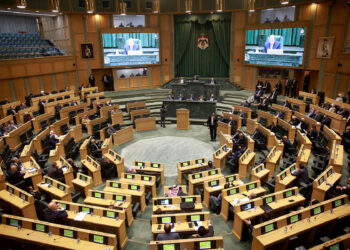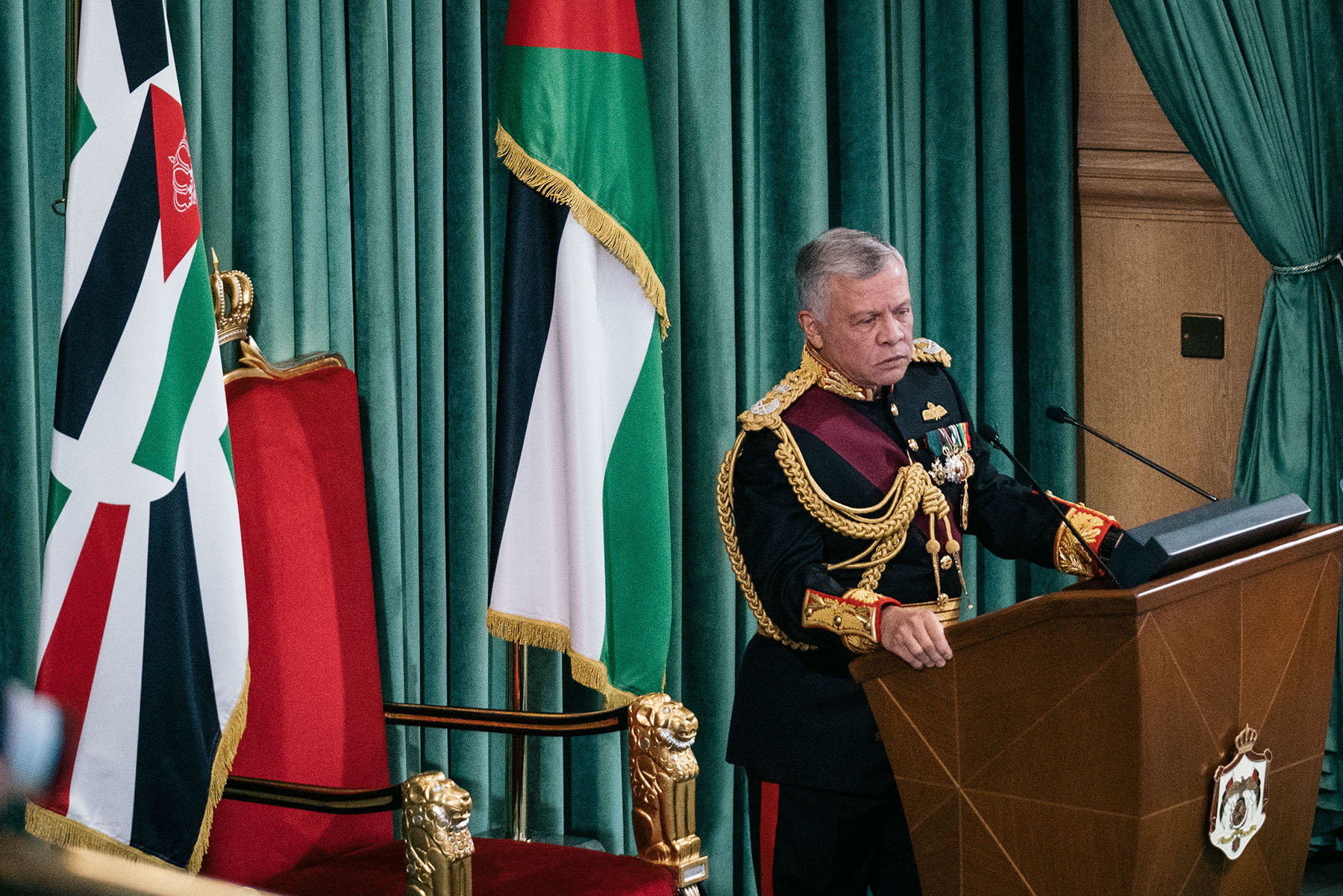Nora Noralla, an Egyptian human rights researcher and consultant, is a research fellow at the Information Society Law Center at the University of Milan. She has worked in different capacities with the Cairo 52 Legal Research Institute, Human Rights Watch, Article 19, and the Berkman Klein Center for Internet & Society at Harvard University.
A year ago, Kuwait's Constitutional Court overturned a law that criminalized "imitating the opposite sex," ruling that Article 198 of the penal code, which authorities had used to prosecute transgender people, was unconstitutional because it violated Kuwaitis' right to personal freedom. The decision was welcome news for transgender people in Kuwait who face widespread discrimination, abuse and harassment.
But while national and international human rights advocates celebrated the court's move as a first step toward recognizing transgender rights in the country, others proceeded more cautiously. Kuwait's judiciary is historically transphobic, as reflected in the courts' attitude regarding legal gender recognition applications filed by transgender people. The judiciary rejects those applications citing Islamic Sharia in its judgments, denouncing "sex change" as the work of the devil and against Islamic and Kuwaiti values.
By ruling against the anti-transgender law last year, the Constitutional Court added to Kuwait's reputation of being more liberal than its neighboring Gulf countries, as its constitution and laws allow for a margin of freedoms that do not exist in countries like Saudi Arabia, for example. Yet the reality in Kuwait does not hold up to that reputation. Like its neighbors, Kuwait doesn't recognize any LGBTQ+ rights at all. Instead, laws criminalize homosexuality and openly target LGBTQ+ Kuwaitis, including morality-based laws that can criminalize any acts deemed "immoral" by Kuwaiti society. Abuse and harassment, especially by the police, are widespread.
"Transgender women have long reported multiple forms of abuse at the hands of the police while in detention, including degrading and humiliating treatment, such as being forced to strip and being paraded around police stations, being forced to dance for officers, sexual humiliation, verbal taunts and intimidation, solitary confinement, and emotional and physical abuse that could amount to torture," said Rasha Younes, senior LGBT rights researcher at Human Rights Watch.
Like its neighbors, Kuwait doesn't recognize any LGBTQ+ rights at all. Instead, laws criminalize homosexuality and openly target LGBTQ+ Kuwaitis.
- Nora Noralla
Transgender Kuwaitis can also face discrimination in accessing employment, health services and education. Gender-affirming health care is nonexistent in the country, forcing those who want to receive it to travel abroad, at great cost.
This is why the Constitutional Court's decision on the anti-transgender law must be seen in the wider context of the Kuwaiti judiciary. In its ruling last year, the court did not offer any comments on the scope of what the law criminalized when it came to "imitating the opposite sex." Instead, the court ruled only on its broad application, repealing Article 198 due to its vague wording and lack of clear definition of what it criminalized, which had given law enforcement agencies unconstitutional powers to interpret the law as they saw fit.
Article 198 of the penal code dated back to 2007, when Kuwait's parliament decided that the existing morality-based laws were insufficient. The Islamist MPs who introduced it stated that the new law would combat "new foreign phenomena that are spreading among Kuwait youth." Transgender people felt the law's impact immediately as police harassment and judicial prosecution against them increased. However, transgender advocacy against the law also began as soon as it was passed, and in 2008, transgender people managed to get a favorable fatwa from a prominent Kuwaiti imam, who declared that transgender people should be allowed access to gender-affirming health care because they suffer from a gender identity disorder and were not "imitating the opposite gender." Yet the cleric, Sheikh Rashid Sa'ad al-Alaym, soon walked his statement back amid a fierce backlash from Kuwait's religious establishment.
As Human Rights Watch warned in a 2012 report, Article 198 of the penal code "created a sea-change in the lives of Kuwaiti transgender women," as it essentially criminalized physical appearance, "the acceptable parameters of which were to be arbitrarily defined by individual police." Transgender women who had previously been able to live quietly under the radar in Kuwait suddenly faced daily discrimination and abuse from the authorities and fellow Kuwaitis.
In 2020, a 39-year-old transgender woman, Maha al-Mutairi, posted a video detailing the sexual violence she experienced at the hands of police while she was detained for seven months in a male prison in 2019, after being convicted of "imitating the opposite sex." Instead of investigating her abuse, Kuwaiti authorities arrested and prosecuted her for "misusing phone communication" under the country's strict telecommunications law, and again for "imitating the opposite sex" online under the penal code. She was found guilty and sentenced to two years in prison. She was later released on appeal in 2021.
In 2020, Kuwait amended its medical liability law to make it similar to other laws in the Gulf, banning doctors from providing any medical treatment, surgical or hormonal, that would result in changing one's sex. At the same time, "sex correction"—a term used in the region to indicate medical treatment for individuals with intersex characteristics—would be only allowed in governmental hospitals after going through tests that would prove that the person is intersex and not transgender.
When Kuwait's transgender law was struck down essentially on technicalities in 2022, the Constitutional Court's limited ruling suggested that a new law still criminalizing "intimating the opposite sex" could be constitutional, as long as it addresses the old law's shortcomings. Sure enough, Kuwaiti MPs have already moved to introduce new amendments with more specific language to make Article 198 acceptable under the constitution, vowing to combat what they call "the transgender immorality."
One of the proposed amendments stipulates that "imitating the opposite sex" will be defined as the following: "Every male who appears dressed in women's clothing or uses cosmetics in a way that makes him appear as a woman. Every woman who appears in men's clothing in a way that makes her appear as a male, according to the country's customs. Anyone who undergoes operations or medical procedures or uses medical drugs to alter their appearance to resemble the opposite sex."
"Justice for transgender people in Kuwait means investigating all allegations of police brutality and abuse, holding officers accountable for misconduct, and protecting trans people from violence."
- Rasha Younes, Human Rights Watch
If passed, this amendment would widen the scope of criminalization to gender-affirming health care, making transgender people criminally liable if they undergo it. Other proposed amendments are less extreme, but would still criminalize acts, clothes and the promotion of anything deemed to be "imitating the opposite sex."
Meanwhile, Kuwaiti authorities sent a harsh message in December about the country's intolerance for LGBTQ+ rights, when the government announced it had deported 3,000 individuals for being gay, transgender or "cross-dressers," as part of a so-called "security campaign." The timing was no accident, as the deportations came with the global spotlight on the lack of LGBTQ+ rights in nearby Qatar during the World Cup, and in other Gulf countries. Like others in the region, Kuwaiti society went into a moral panic, fearing the spread of what some vilified as "the LGBTQ+ ideology" imposed by the West.
It was another sign that celebrating the repeal of Article 198 was premature. The court's decision, after all, has little to do with transgender rights in Kuwait, and the authorities seem determined to introduce new laws that will specifically criminalize being transgender.
"Instead of further criminalizing transgender expression, the Kuwaiti National Assembly should repeal the amendment to Article 198, once and for all," Younes said. "Justice for transgender people in Kuwait means investigating all allegations of police brutality and abuse, holding officers accountable for misconduct, and protecting trans people from violence."































![Security forces loyal to the interim Syrian government stand guard at a checkpoint previously held by supporters of deposed president Bashar al-Assad, in the town of Hmeimim, in the coastal province of Latakia, on March 11, 2025. Syria's new authorities announced on March 10, the end of an operation against loyalists of deposed president Bashar al-Assad, after a war monitor reported more than 1,000 civilians killed in the worst violence since his overthrow. The Syrian Observatory for Human Rights said the overwhelming majority of the 1,068 civilians killed since March 6, were members of the Alawite minority who were executed by the security forces or allied groups. (Photo by OMAR HAJ KADOUR / AFP) / “The erroneous mention[s] appearing in the metadata of this photo by OMAR HAJ KADOUR has been modified in AFP systems in the following manner: [Hmeimim] instead of [Ayn Shiqaq]. Please immediately remove the erroneous mention[s] from all your online services and delete it (them) from your servers. If you have been authorized by AFP to distribute it (them) to third parties, please ensure that the same actions are carried out by them. Failure to promptly comply with these instructions will entail liability on your part for any continued or post notification usage. Therefore we thank you very much for all your attention and prompt action. We are sorry for the inconvenience this notification may cause and remain at your disposal for any further information you may require.”](https://dawnmena.org/wp-content/uploads/2025/04/syria-22039885951-360x180.jpg)






